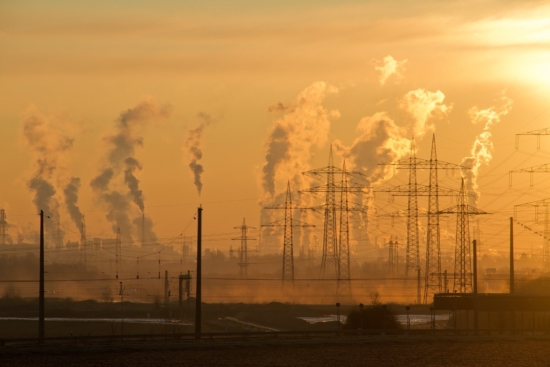Chinese government power rationing halves tyre production of some local tyremakers
 In a bid to improve national air quality during the autumn and winter, the Chinese central government has restricted the emissions of power generation and manufacturing operations, which is putting pressure on the tyre industry - indicative power station library image used (Photo: Pixabay)
In a bid to improve national air quality during the autumn and winter, the Chinese central government has restricted the emissions of power generation and manufacturing operations, which is putting pressure on the tyre industry - indicative power station library image used (Photo: Pixabay)
As if the Covid-related troubles combined with complex shipping challenges and rising raw material costs weren’t enough, Chinese government policy is now adding to the pressure on tyre manufacturers making tyres for export from the People’s Republic. Specifically, the Chinese central government environmental policy has led to power rationing across the country since mid-September, which has had a marked impact on manufacturing business including the tyre industry. Indeed, more than 20 tyre manufacturers have experienced power-rationing-related temporary shutdowns and/or have implemented price increases because of these product headwinds. And these are having a marked impact on tyre production.
According to local news sources, the real-world effects of the implementation of the central government policy varies from region to region. For example, some provinces such as Jiangsu, Yunnan, and Zhejiang have dual energy consumption control (total energy consumption + intensity) factors and the government requires companies to stop work and limit production. In others, such as Guangdong, Hunan, Anhui, power has been rations because demand exceeds supply. Some province face both the impact of the government policy and rationing due to supply and demand imbalances.
The outcome? Price increases. According to the Chinese language price increase documents released by global manufacturers and domestic Chinese tyre producers alike, the cost of the products they product will rise by between 5 and 7 per cent during the month of October. As well as the Chinese factories belonging to the top tier of global tyremakers, Chinese manufacturers mentioned in the documents and local news reports include: Linglong, Shengtai, Huasheng, and DoubleStar to name just a few.
Further up the supply chain, those companies supplying tyremakers are experiencing the same problems. On 26 September, Jiangxi Black Cat Carbon Black Co., Ltd. issued a product price adjustment letter stating that since 26 September 26, the company’s specialist carbon black product prices have gone up by an average of 1,000 yuan.
In addition, at least one silica company in Zhuzhou, Hunan announced that, due to a sharp rise in its raw material prices, it has raised the prices of its own silica products by 800 yuan/ton effective 1 October 2021.
Seven days on/seven days off tyre production
All this means upward price pressure and even longer term sourcing planning is the daily reality of anyone seeking to import Chinese-produced tyres. As one such Chinese tyre brand recently told Tyres & Accessories “the ‘dual control of energy consumption’ policy of the Chinese government” has “a certain impact on the production capacity of some manufacturing companies and the delivery of orders in some industries have to be delayed.
“In addition, the China Ministry of Ecology and Environment issued the draft ‘2021-2022 Autumn and Winter Action Plan for Air Pollution Management’ in September”.
As a result, “our manufacturing operation has been adjusted to “run for 7 days and stop 7 days”, and the production capacity is only half of that under normal conditions.”
The latest information follows reports back in February 2021 that more than 50 Chinese tyre manufacturing operations raised their prices. Together with sky-high container shipping rates, the combined price increases mean Chinese-produced tyres have lost much of the price-related competitive edge compared to other low and lower mid-range products, which – anecdotally at least – appears to be leading to resurgence in the mid-range, group brands of premium tyremakers and of those Chinese tyre manufacturers witch sufficient non-Chinese tyre production capacity.





Comments